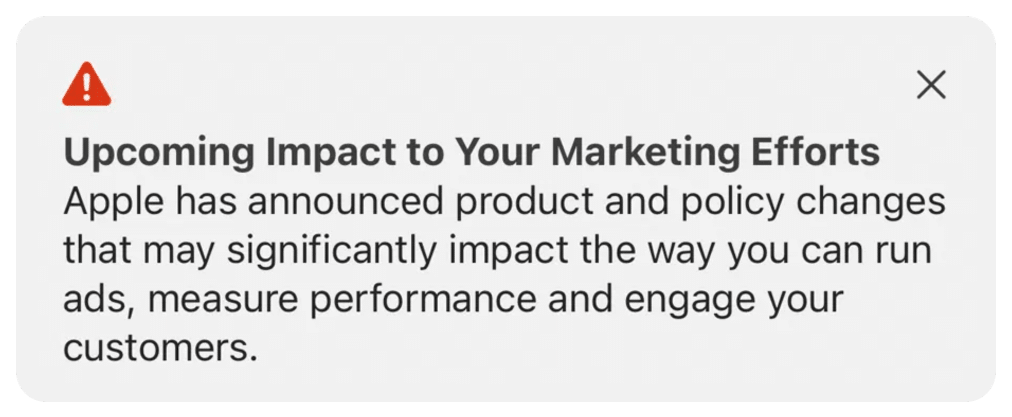
We believe users should have the choice over the data that is being collected about them and how it’s used. Facebook can continue to track users across apps and websites as before, App Tracking Transparency in iOS 14 will just require that they ask for your permission first. pic.twitter.com/UnnAONZ61I
— Tim Cook (@tim_cook) December 17, 2020
The war escalated when Facebook recently took out full page ads in the New York Times and other major publications.
To understand all the hullabaloo, we need to understand three things:
– pixels
– cookies (not the delicious kind)
– how pixels and cookies relate to privacy
A pixel is a snippet of code that allows Facebook to receive information from websites (like yours).
Examples of this information include:
– how much time a user spends on a particular page
– how many users add a product to their cart or actually made a purchase.
This information is extremely valuable for any one trying to run profitable Facebook ads for a few reasons:
– creating lookalike audiences
– audience segmenting
– retargeting campaigns, etc
Smart authors don’t “sell books” with Facebook ads; they buy eye balls and information.
Apple’s new cookie policy will make it much harder for Facebook pixels—and, by extension, you—to access that information.
Why?
As creator of Lead Enforce, Paco Vermeulen, writes:
Cookies are very useful because they help us recognise and track users across sessions, attribute sales to ad clicks, retarget, build lookalike seed pools, exclude purchasers, etc.
But they’ve also transformed websites into ugly banner displays with such intrusive targeting that people feel eavesdropped.
That’s why Apple started a war to protect privacy and improve user experience by crumbling these tracking cookies and limiting the abilities advertisers have to stalk internet users.
Internet users are mainly identified by cookies on their device that a pixel can read and send to 3rd-parties (like Facebook). If these cookies are crumbled every user is new/unknown again after 7 days.
In short, Apple’s new update will drastically impact Facebook’s ability to show relevant ads to its users who use Apple devices.
Apple users make up roughly 14.4% of Facebook’s mobile users.
That might not sound like a significant portion of your target readers, but it’s important to note that Google is working on it’s own version of ITP for Chrome.
You can’t ignore this.
This is much more important than a funnel hack or a scaling trick.
This is about the future of growing and owning your audience.
What should you do?
1. Collect as much information from your visitors as you can.
If you don’t have a website, get one yesterday. You need to have a system in place to automatically capture email addresses and/or mobile numbers from as many people who visit your website as possible. Having the ability to make phones vibrate is still the best way to own the relationships you have with your audience members.
2. Sharpen your ideal reader persona / avatar.
As targeting and retargeting based on pixel data will gradually be limited, it becomes even more important to KNOW which characteristics define your perfect audience. Things like their demographic profile, their interests, etc. These are native elements on the Facebook platform that will remain available.
